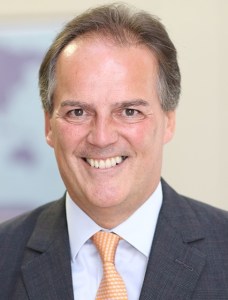“The shocking inability of the Western media and political elite to understand what is going on in Russia continues to astonish me,” writes Peter Hitchens, and there I was, thinking he had stopped playing lickspittle to Putin’s kleptofascism.
From the height of his own self-professed understanding, Hitchens explains that, “for all his grave faults” [a mandatory disclaimer, creating an appearance of balance and supposedly vindicating the ensuing useful idiocy], “Putin’s Russia has totally cast off Communism, knowing in grim detail what it really means, and is more Christian and less Marxist than we are.”
What kind of Communism has Russia cast away? The kind where they talked about the dictatorship of the proletariat and “from each according to his ability, to each according to his needs”?
Well, Russia has indeed cast it off, but it happened long before Putin. At the time I left Russia in 1973, the only people who took that stuff seriously were Peter Hitchens himself and other Western dabblers in useful idiocy.
The Soviets used those shibboleths as an ideology legitimising their evil regime, but all true believers in it had been shot by Stalin for being annoying pests. Instead, Stalin created what Mussolini called “a Slavic version of fascism”, and il Duceknew fascism when he saw it.
Hitchens now calls himself a conservative, but he clearly still takes on faith the smokescreen of communist jargon laid by the evil Soviet regime, thinking it reflected actual, rather than virtual, reality.
His credulity knows no bounds for he also takes at face value the Christianist-conservative smokescreen laid by the evil heir to Stalin’s fascist regime.
Hitchens doesn’t realise – which is unfortunate in the context of his claims to superior understanding – that Christianity and other beautiful conservative things are used by Putin exactly the same way that Marxism was used by Stalin and his successors: as propaganda tools legitimising his evil regime and keeping the masses in check.
The evil is different from Stalin’s in that the regime has added the ‘klepto-‘ component to its fascism. In fact, ‘klepto-‘ is the operative part: stealing the country blind for the purpose of self-enrichment is the real desideratum of the Putin gang.
Fascistic elements are deployed when needed operationally or required ideologically. The operational need dictates the suppression of free speech, ballot-box stuffing at election time, the harassment and murder of opposition politicians and journalists.
The ideological need demands a testosterone-driven stance in foreign policy, projecting the muscular image of a Stalinesque empire builder. The Russian Orthodox Church was first coopted for this purpose by Stalin, and it has since acted as an extension of the secret police.
All its hierarchs, including His Holiness the patriarch, are career KGB agents, who know exactly what their role in life is. They too take part in robbing the country, making brisk business in duty-free booze and cigarettes. Using a Moscow monastery as a brothel isn’t beyond them either.
That isn’t to say that there are no sincere Christians in Russia. There are. But there are none in her ruling elite, 84 per cent of which are ‘ex’ KGB officers forming an organic blend with the remaining 16 per cent, the gangsters.
The sight of Putin and his accomplices, who have all purloined billions from an economy in which millions starve, crossing themselves before their get-togethers should nauseate any person of taste.
As to describing Russia as a Christian country, which is Hitchens’s recurrent theme, that takes an impressive combination of ignorance and dishonesty.
If he simply felt like saying that Christianity is in the doldrums in Britain, while all major parties are socialist and Her Majesty’s opposition is frankly Marxist, he’d find no argument in these quarters.
But touting Russia as a role model has to be a sign of a deep-seated disorder. Hitchens is clearly attracted to raw Russian power, whether wielded by those leather-jerkined Bolsheviks, as it was in his youth, or by the Armani-clad kleptofascists of today. Freud would have a field day.
Hitchens’s article is entitled The Gospel Truth About Russia. I hope everyone realises that the gospel is not so much apocryphal as downright fake.








